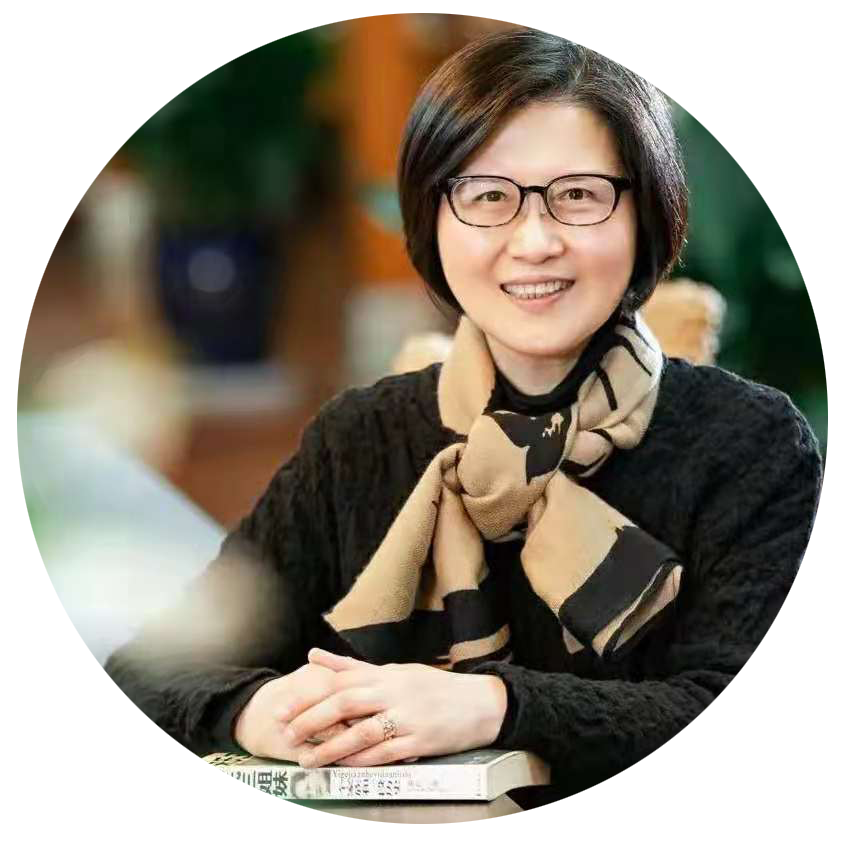
In 1979, Xu Yongchu graduated from high school with honours. With outstanding grades,
she had the world at her feet and many important choices to make. However, instead of
following her parents wish to become a doctor, her love for working with children and
interest in education pushed her in a different direction. At the last minute, she chose
to major in chemistry at Shanghai Normal University to begin her path as a teacher.
This love of working with children has been the central tenet of her educational career. It has inspired and driven her to excel in the field of education, in which she has enjoyed a highly distinguished career spanning nearly four decades. During this time, she has been awarded titles such as Master Principal and Professor (the highest-level professional title among teachers, equivalent to university professor). In addition, she is a recipient of the Shanghai City Gardener Award, the March 8th Red Flag Bearer title and many others.
Now, with the love of children and the admiration of Pao School’s patriotic sentiment, Madam Xu has accepted Pao School’s invitation to serve as the school’s third president after Ni Guyin and Wu Zijian. President Xu Yongchu joined the Board in March this year and officially assumed the post of President on July 1.
As Head of Shanghai No. 3 Girls’ High School – the only key girls’ school in Shanghai – for two decades, Madam Xu has shared a long-standing friendship with Pao School. In its fledgling days, Pao School opened in a borrowed building from No. 3 Girls’ High School. During these early years, Madam Xu and her team played an important role in Pao School’s development through the generous usage of her school’s beautiful campus and educational resources.
Always focused, making steady progress
Xu Yongchu began her educational career in 1983 at Jianqing Experimental School as a chemistry teacher. She went on to serve as a homeroom teacher, instructor, faculty secretary, and assistant to the principal. In April 1998, Xu Yongchu formally joined the No. 3 Girls' High School as academic vice-principal before becoming principal in September 2002.
In her 23 years working as a school principal, she has used her teaching management experience and life wisdom to nurture the fine traditions of the No. 3 Girls High School. One of her hallmark achievements – which came about amid international exchanges – has been the creation of a "liberal arts education culture" which incorporates both Chinese and Western elements and includes the study of topics such as art and culture. As part of this "liberal arts education culture", Madam Xu established "The Educational Theatre Innovation Course", which has won education awards at both the municipal and national level. In order to record the history of the century-old girls' school, she edited a series of books, including "The Students of Girls' School", "Santa Maria Girls' School" and "Educational Theatre-Innovative Courses in Girls' High Schools".
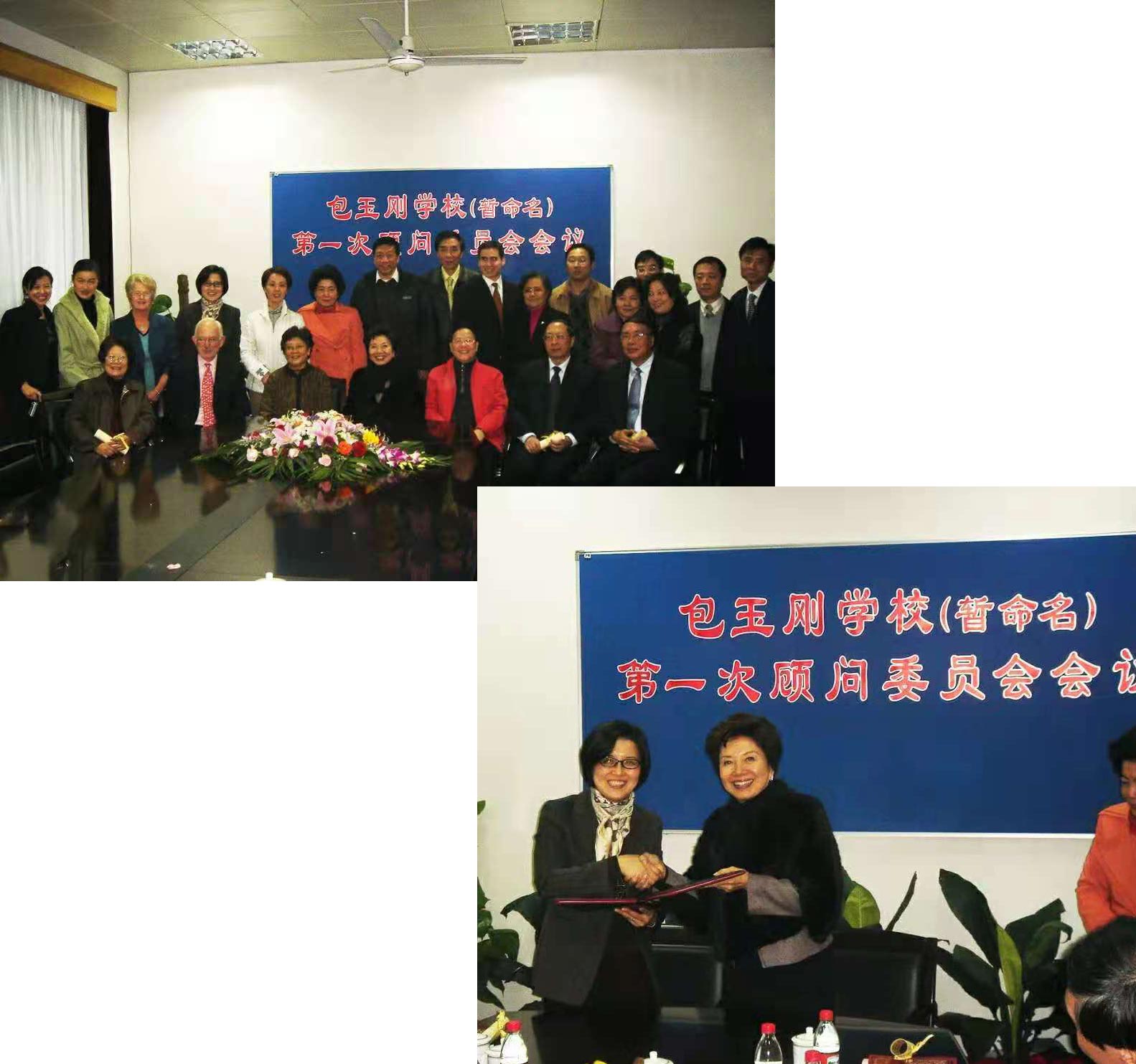
The first Pao School advisory board meeting
As she prepared for the next stage in her career, President Xu received one invitation after the next, from both major educational institutions and others outside the field of education. In the end, she chose to join YK Pao School as, for her, the most important thing is that a school’s educational philosophy is reflected in its practice. President Xu notes that since Pao School’s very beginning, she has witnessed the aspirations and efforts of the three founders to build a world-class school for tomorrow’s China. Over the past 15 years, the persistent pursuit of the school’s tripartite educational mission has borne fruit. Over the past 15 years, the persistent pursuit of the school’s tripartite educational mission has borne fruit, from the development and construction of facilities, to the curriculum design and implementation as well as the development of the Chinese and foreign teaching team, and of course, the exceptional performance of the first cohort of graduates. And of course, the exceptional performance of the first cohort of graduates.
President Xu believes a number of exceptional private schools have emerged in Shanghai that are committed to discovering the potential of each child. They provide students with a wide range of course options that are highly personalized and cultivate both the academic and other interests of children, preparing them well for the future. These schools have played a leading role in China's education reforms, and Pao School is undoubtedly one of the frontrunners in this field, she says.
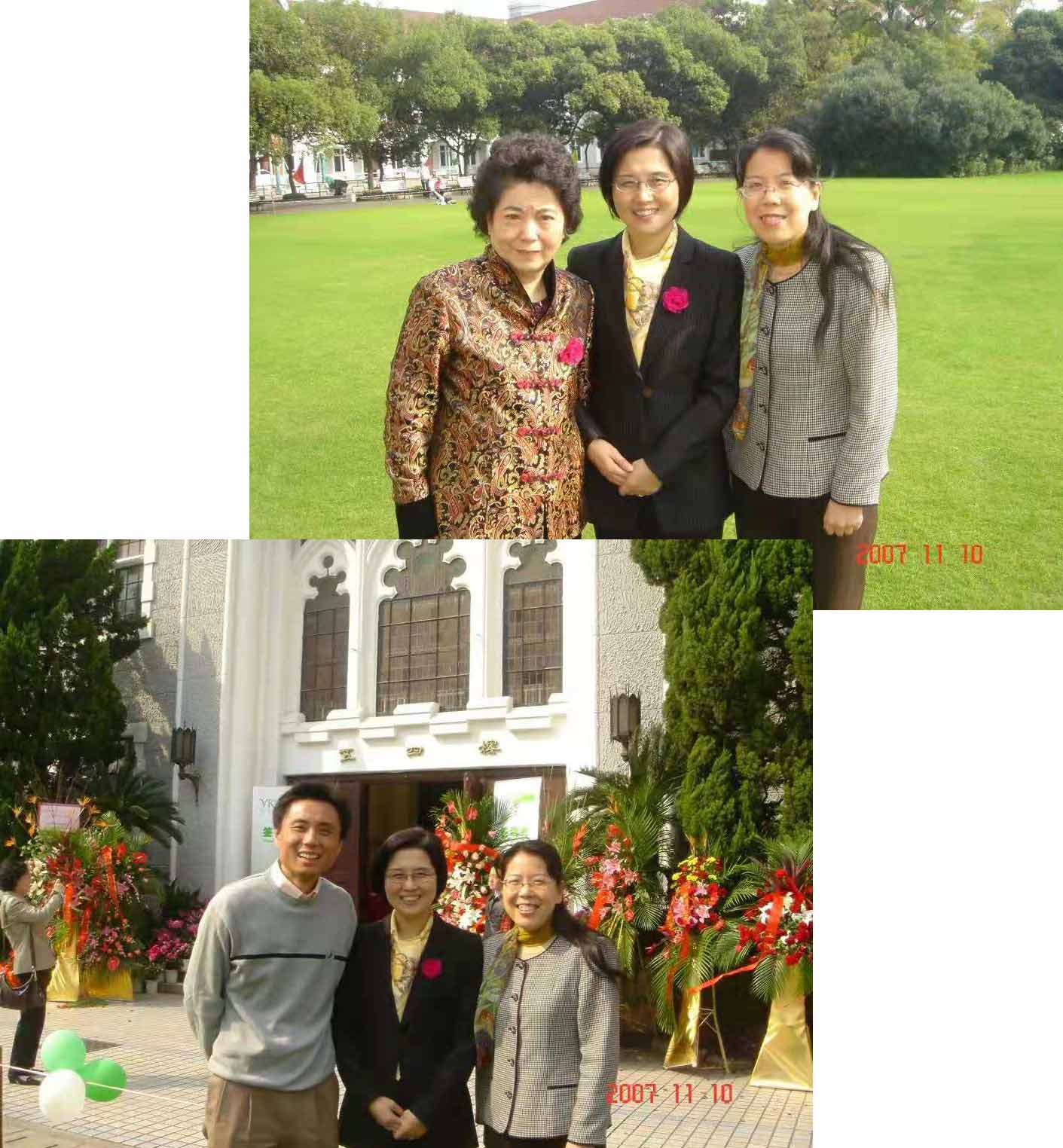
In 2007 school founding ceremony
Develop whole-person education and take on social responsibility
In President Xu’s view, although Girls' No. 3 High School, as a long running public girls school, and Pao School are different types of schools, they have much in common when it comes to operational practice and educational philosophy. For instance, in their own unique ways, both schools are dedicated to whole-person education.
The Educational Theatre Innovation Course (also known as ‘educational theatre’) at No. 3 Girls' School is an example of a whole-person education best practice. The educational theatre was established in 2010 at the No. 3 Girls' High School under the leadership of President Xu. In a discussion about why the educational theatre was founded, President Xu said that, based observation and student feedback, drama was the school’s most popular club and left a deep impression on alumni. She believes that drama not only enhances students' self-confidence, as well as leadership, communication and rational thinking skills, but also cultivates their empathy – skills necessary for success in a changing world.
In order to allow girls to maximize the benefits of drama education, President Xu decided to launch a special course in educational theatre. To support this endeavor, she invested in the schools’ drama resources, such as transforming the auditorium into a theatre. In addition, she invited famous Singaporean directors and drama teachers from Singapore Nanyang Girls' High School to help the girls with physical, voice, and performance training. Further, she assigned three Chinese teachers with a background in the arts to serve as the main teachers of this course.
The teaching content and evaluation design of the educational theatre are also innovative, with in-classroom learning featuring many group discussions. To encourage each student to express their opinion, Madam Xu asked the teachers to evaluate them based on the performance with their respective group. The group settings are also varied, to give students different opportunities to express their ideas and facilitate communication among group members.
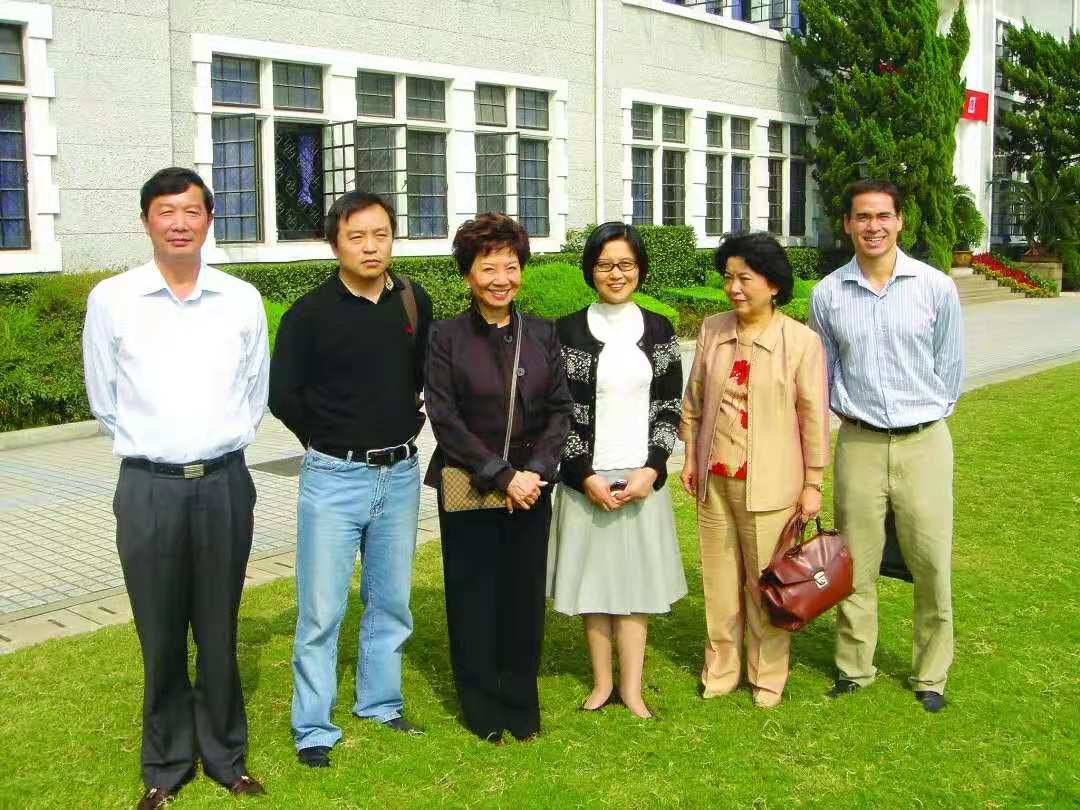
In 2018, on the eighth anniversary of the Educational Theatre Innovation Course's founding, the project "Research on the Development and Implementation of Educational Theatre" (conducted by the Educational Theatre Innovation Team) won three major education achievement awards: the Shanghai Municipal Foundation Education and Teaching Achievement First Prize, the Ministry of Education Basic Education Teaching Achievement Second Prize, and the Shanghai Municipal Sixth Scientific Research Achievement Award First Prize.
In President Xu's opinion, whole-person education is ultimately about "being a holistic person". It not only focuses on imparting knowledge, but also on the cultivation of a child’s character, so that they may develop a strong moral foundation. The ultimate goal of whole-person education is to train students to be moral, knowledgeable and capable: a well-developed and complete person.
Based on years of exploration and practice, President Xu is especially focused on the significance of social values to whole-person education. For example, Pao School’s motto is "A School For Tomorrow’s China, An Education For Tomorrow’s World." President Xu believes that when students step off campus, the deep-seated goal of whole-person education is to ensure that they are well prepared for the future and able to adapt to a constantly changing world.
"If we only emphasize the value of knowledge and scores, this education will have no future," President Xu says. "Our students must have compassion for others and a sense of social responsibility. As a Chinese school with an international perspective, Pao School has always emphasized social responsibility, and teaches students the importance of serving society from the moment they step onto campus. In the process, students not only gain the respect of others and help meet their needs, but also strengthen their sense of responsibility."
Strong international competence
Since Pao School’s inception, character education has been an integral part of its educational approach and is integrated into all aspects of life at Pao School. Based on the core values of Compassion, Integrity and Balance, Pao School’s character education focuses on cultivating students’ self-confidence, curiosity, proactive spirit, innovative thinking and introspection.
President Xu believes that in the future, Pao School must focus on cultivating students' appreciation of Chinese tradition, and international perspective. She believes that competence on the world stage is an essential skill for Pao School students. The prolonged coronavirus pandemic has changed the world, making the future even harder to predict. In this time of upheaval, there are both many opportunities and challenges for young people and the significance of character education is growing. Emphasizing this point, President Xu says, "I hope that our students will be resilient, strong, adaptable, and successful in their future endeavours."
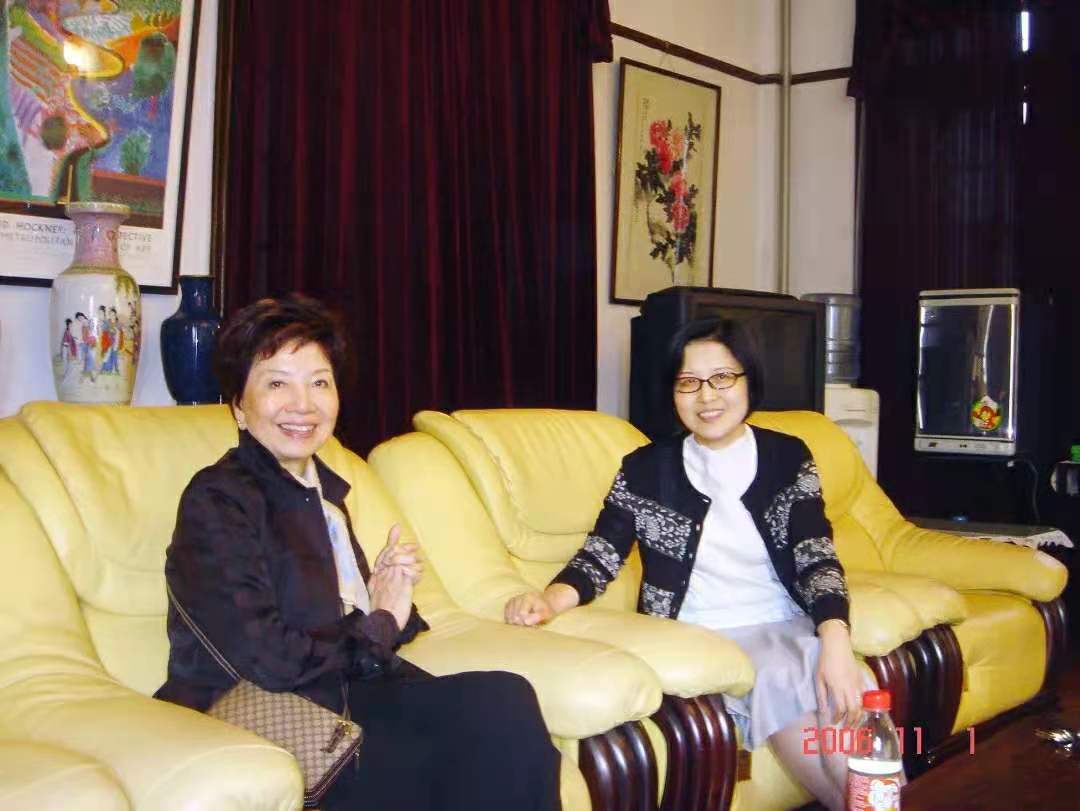
Chairman Anna Sohmen Pao and President Xu
Pao School’s crystal anniversary
President Xu said that since its foundation, consistent with the experiences and values of Mr. YK Pao, Pao School has strived to embed the students with love of China and appreciation for Chinese culture. Looking ahead, in compliance with educational laws, Pao School will stay focused on the tenets of developing whole-person education, carrying on traditions of Chinese culture, and fostering an international perspective. Further, Pao School will expand its international vision while imbuing students with a long-term perspective, slowly developing their inner drive. Academically, the school will continue to improve the teaching level of Chinese and international teachers, through investing the utmost energy and resources in the process, and forge ahead towards a bright holistic education future.
This year marks a milestone for Pao School. After 15 years since the school's founding, the community is celebrating its crystal anniversary. President Xu notes that a crystal's purity is symbolic of the companionship and interdependence between Pao School and its founding students and parents. This precious relationship has endured over the past 15 years, passing down from one cohort to the next.
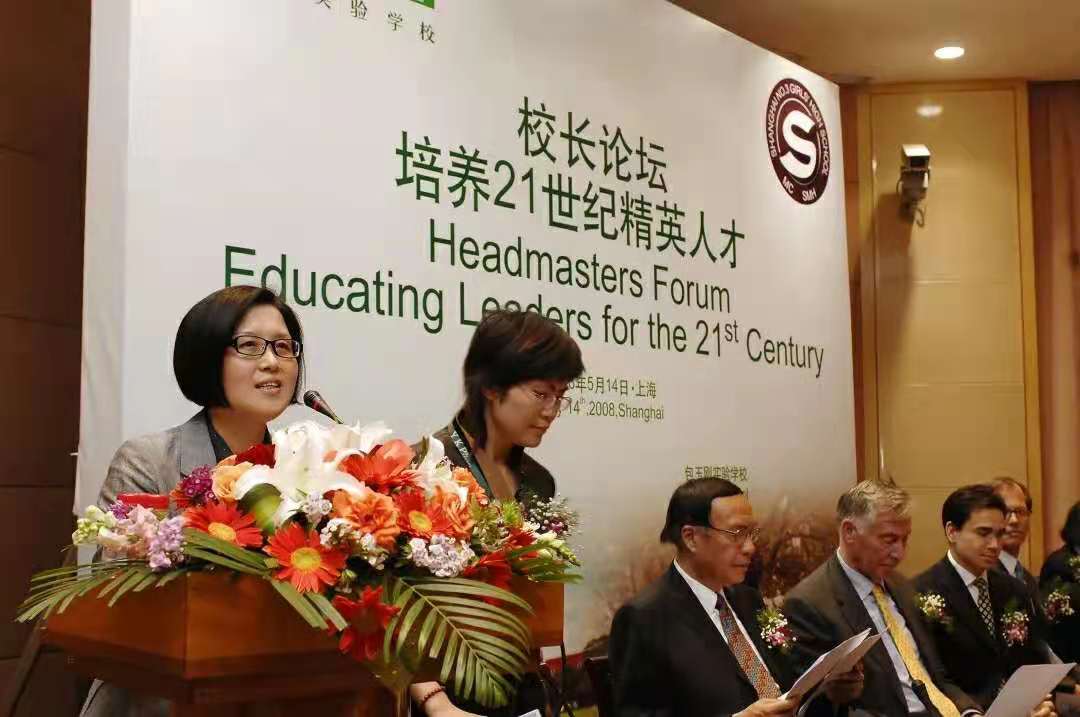
Principal’s Forum - Cultivating the elite talent of the 21st century
As we approach our 15th anniversary, Pao School can look back at its tremendous growth and transformation. Despite these changes, we remain true to the Vision and Mission of Pao School as a not-for-profit institution: striving for academic excellence; whole person education; a legacy of Chinese culture and ensuring students may serve as a bridge between China and the world. We are confident Madam Xu will bring her experience and wisdom to lead Pao School with new vitality toward future success.
——Philip Sohmen, Executive Deputy Chairman
*This article is compiled from an interview with President Xu Yongchu